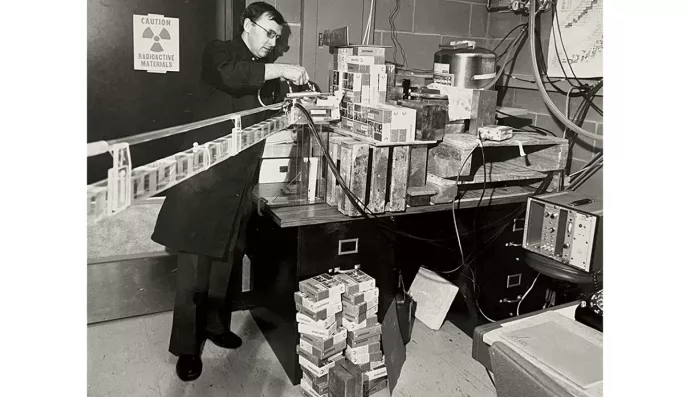
Core Facility Spotlight: UTM’s Academic Workshop
When you step into the Academic Workshop, the comfortable smells of wood and glue, rumble of machines, and papers shuffled about on the old office desk might make you think you’ve stepped back in time—or at least back to your high school shop class. Located in the William G. Davis building, when the workshop was built back in 1969, the heavy machines were brought in via a ramp; after they were set up, the builders closed the ramp, sealed the wall, and built five floors on top. They’ve been there ever since.
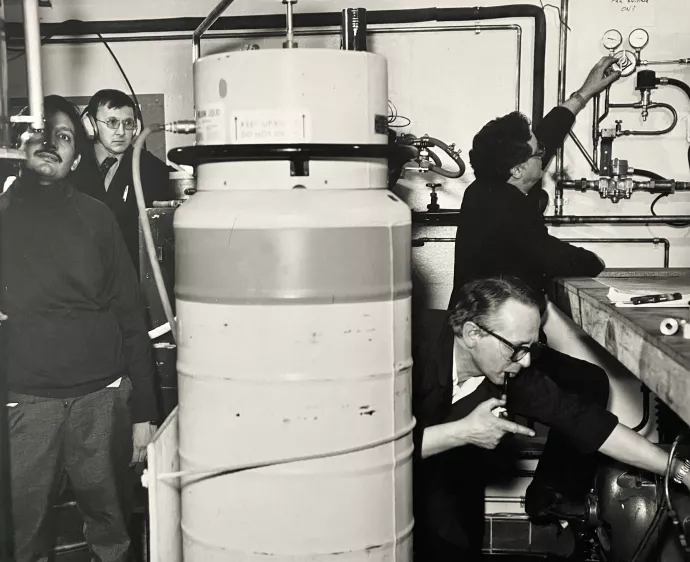
A facility common to many campuses, our Academic Workshop was built specifically to support research at UTM, and workers would build items from scratch or modify existing equipment. Back then, the order of the day was moonrock exploration, magnetic research, aquatics, and chemistry. New faculty members were introduced to the shop on their welcoming campus tour, and they would soon find in it a useful partner as they worked on various projects.
For the past 17 years the workshop has been supervised by industry expert Peter Duggan; these days, it’s comprised of the Machine Shop and Microelectronics rooms, and it sits under the purview of the Office of the Vice-Principal, Research. Peter works alongside craftsperson Robert Dick, and Mirek Szreder, who runs Microelectronics, building and repairing circuit boards. Those sturdy machines are still working just fine and, though the projects are getting smaller (with few no larger than four-inches-square), they do the job.
“Work is cyclical,” Peter shares as we chat casually in his office, its walls dotted with black and white photos from decades gone by. “We’ll get a lot of chemistry work for a time, then biology, or physics, or psychology.” Over the years, he’s watched professors gear up for projects; the grad students come, then there’s the testing phase, the writing phase.
Quiet, tall, and serious about his work, Peter knows this shop inside and out—and he has the stories to prove it. As we speak, he scrolls through photos of past projects on his desktop—plant stands, vacuum pump repairs, display cases, and cooling blocks to keep crystal from overheating; fruit fly mazes, teeny-tiny guillotines, and camera and microscope holders; cut and re-assembled cow bone; and more recently, 3D-printed parts, courtesy of a new workshop printer.
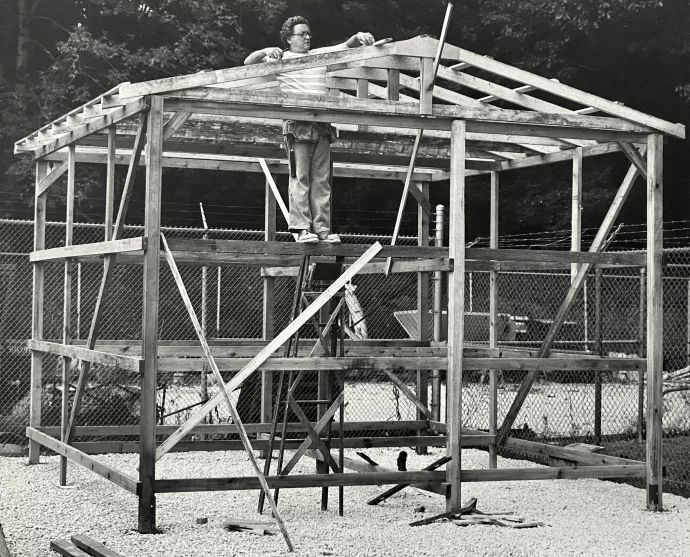
Along with projects built from scratch, equipment needs ongoing maintenance as warranties expire, items require cleaning, and incompatible brands need to sync to work.
“A lot of these labs have limited budgets,” Peter explains, “so researchers will buy things on eBay or Kijiji because they’re a better deal. But item A may not fit with item B, so that’s where we come in. We make them fit so they can use them how they want.”
Thinking about your next project? There’s no ticket system here. Whether you bring in your design sketched out on a napkin or laptop, you’ll sit down for a one-on-one to go over the details—and that’s part of the magic.
“I grew up without the Internet. I use paper,” Peter laughs. “Each project matters to the individual, and I want to sit down and have that same emotional connection to it, to understand how important it is to you. We work through the problems, we spend time troubleshooting, we draft and model.”
That kind of customer service means that for Peter and his team, an abstract project becomes personal—the collaboration produces a better product and builds strong relationships with researchers across UTM. “Then, when they come back and ask me for something else, I know I’ve done it well and that my work was good,” he says.
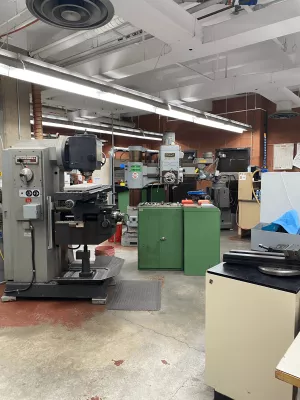
It quickly becomes apparent that the success of this workshop is not only about innovation and skill but being a good listener. Though they have similar shops on their own campuses, researchers from other divisions have come to UTM’s, which speaks both to the quality of the work and the team’s reputation.
During the pandemic, Peter was still working in the shop, making appointments with professors and, at times, taking projects with him to complete in his home shop. The work kept moving rhythmically along, as steady and sturdy as those trusted machines.
“It may seem like time stopped in here a long time ago,” Peter says thoughtfully, looking around the space which sits, in many ways, as untouched as when it was built. “But we’re not frozen in time. The complexity of the work has changed, everything is smaller—and will only get smaller still.”
Though it might support the future of research, this is a space that’s filled with history. It’s an interesting juxtaposition to think about, as the tools of the past help to inform what’s next—perhaps for years to come. As Peter jokes, if they can’t fit in the elevator, they aren’t leaving anytime soon.
For information on all of our Core Facilities, please visit our website.
Contact the Academic Workshop
Our workshop experts look forward to helping you with your project needs and are available to answer any questions. Please find service details below, and visit the Academic Workshop online for additional information.
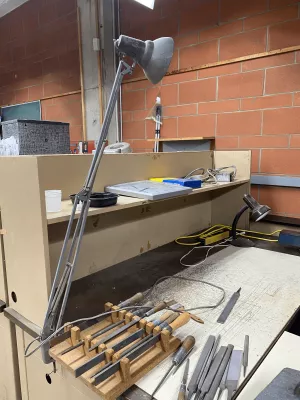
Services: Academic Machine Shop
Location: DV 1004 | Rate: $15.00/hour plus materials
For the Machine Shop, please contact Peter Duggan (peter.duggan@utoronto.ca) via email, or phone the Shop Office at 905-828-5327.
Services: Microelectronics
Location: DV 1073 | Rate: $15.00/hour plus materials
For Microelectronics, please contact Mirek Szreder (mirek.szreder@utoronto.ca) via email or phone the Shop Office at 905-828-3740.
